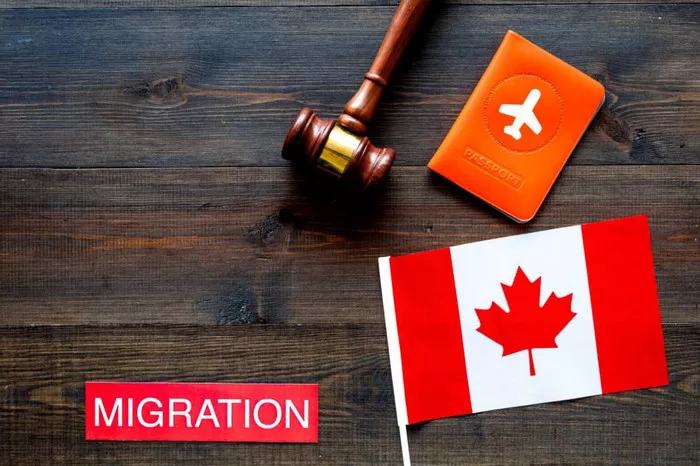Canada, known for its welcoming atmosphere, stunning landscapes, and high quality of life, has become a sought-after destination for individuals looking to make a new home abroad. Moving to Canada, however, is not a simple process. The Canadian government has established a set of qualifications and requirements to ensure that immigrants contribute positively to the country’s growth while also adapting successfully to the Canadian way of life. In this article, we will explore the key qualifications one must meet to move to Canada and obtain permanent residency.
Understanding Canadian Permanent Residency
Before delving into the specific qualifications, it’s essential to understand the concept of permanent residency in Canada. Permanent residency is a status that allows foreign nationals to live, work, and study anywhere in the country. It is not the same as Canadian citizenship but is a significant step towards it. Permanent residents enjoy most of the rights and responsibilities that citizens have, including access to healthcare and social services.
Express Entry System: The Gateway to Canada
The Express Entry system is a point-based immigration system that serves as the primary gateway for skilled workers to obtain permanent residency in Canada. The system manages three federal economic immigration programs:
1. Federal Skilled Worker Program (FSWP):
The FSWP is designed for individuals with the skills and experience needed to contribute to the Canadian economy. To qualify, candidates must meet certain criteria, including having at least one year of continuous full-time or an equivalent amount of part-time paid work experience in a skilled occupation.
2. Federal Skilled Trades Program (FSTP):
This program targets individuals with experience in specific skilled trade occupations. To be eligible, candidates must have at least two years of full-time work experience in a skilled trade within the five years preceding the application and meet other requirements.
3. Canadian Experience Class (CEC):
The CEC is for those who have gained skilled work experience in Canada. Candidates must have at least one year of skilled work experience in Canada within the three years before applying and meet language proficiency requirements.
Comprehensive Ranking System (CRS): Scoring for Success
The Express Entry system uses the Comprehensive Ranking System (CRS) to assess and rank candidates based on factors such as age, education, work experience, language proficiency, and adaptability. The higher the CRS score, the better the chances of receiving an Invitation to Apply (ITA) for permanent residency.
1. Core Human Capital Factors:
Age: Points are awarded based on age, with younger applicants receiving more points.
Education: Higher levels of education result in higher CRS scores.
Language Proficiency: Proficiency in English and/or French is crucial. Language test results, such as IELTS or CELPIP, are required.
2. Additional Factors:
Canadian Education and Work Experience: Having studied or worked in Canada can boost CRS scores.
Spousal Factors: Points can be earned if a candidate’s spouse or common-law partner also meets certain criteria.
Provincial Nomination: A nomination from a Canadian province adds valuable points.
Provincial Nominee Programs (PNPs): A Regional Approach
In addition to the Express Entry system, Canada’s provinces and territories have their own immigration programs under the Provincial Nominee Programs (PNPs). These programs allow provinces to nominate individuals who have the skills, education, and work experience needed in their specific region.
1. Eligibility Criteria:
Connection to the Province: Candidates must demonstrate a genuine intention to settle in the nominating province.
Job Offer: Some PNPs require a valid job offer from an employer in the province.
2. Express Entry-aligned PNPs:
Certain PNPs are linked to the Express Entry system, providing an additional pathway for candidates to receive a provincial nomination and significantly boost their CRS score.
Family Sponsorship: Reuniting Loved Ones
Canada values family reunification, and the Family Class Sponsorship Program allows Canadian citizens and permanent residents to sponsor their family members for permanent residency.
1. Eligible Relationships:
Spouses and Partners: Married and common-law partners are eligible.
Parents and Grandparents: Canadian citizens and permanent residents can sponsor their parents and grandparents.
Dependent Children: Children under a certain age may be sponsored.
2. Financial Responsibility:
Sponsors must demonstrate the financial means to support their sponsored family members.
Business Immigration Programs: Investing in Canada’s Future
Canada encourages individuals with entrepreneurial spirit and business acumen to contribute to its economic development through various business immigration programs.
1. Start-up Visa Program:
Entrepreneurs with a viable business idea and the support of a designated organization can apply for permanent residency.
2. Self-employed Persons Program:
Individuals with relevant experience in cultural activities, athletics, or farm management may be eligible for this program.
Admissibility and Criminality Checks: Ensuring a Secure Canada
Regardless of the immigration program, all applicants must undergo thorough admissibility checks. Criminality, security, and medical examinations are conducted to ensure that individuals entering Canada do not pose a threat to its citizens and are in good health.
1. Criminality Checks:
Applicants with a criminal record may be deemed inadmissible. Rehabilitation options are available in some cases.
2. Security Checks:
Individuals with connections to organized crime or security threats may be denied entry.
3. Medical Examinations:
A medical examination is required to ensure that individuals do not have a condition that could be a danger to public health or safety.
Conclusion
Moving to Canada is a transformative experience that requires careful consideration of one’s qualifications, adherence to eligibility criteria, and a thorough understanding of the immigration process. The qualifications discussed in this article serve as a comprehensive guide, providing prospective immigrants with the knowledge needed to navigate the intricate path to Canadian permanent residency. By meeting these qualifications, individuals can not only contribute to the growth of Canada but also embrace a new chapter in their lives filled with opportunities, diversity, and the promise of a brighter future.


